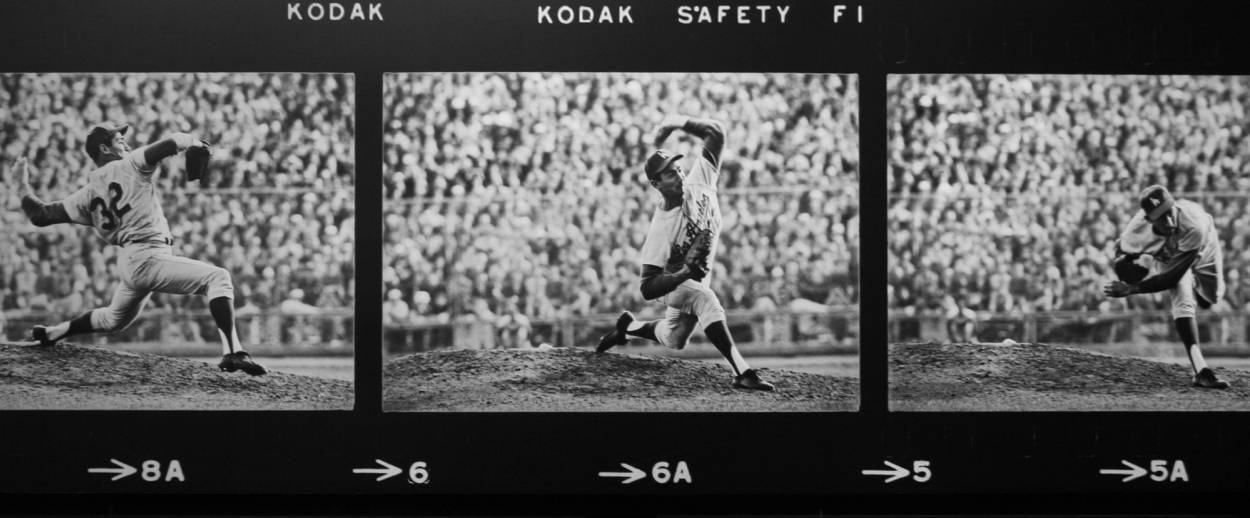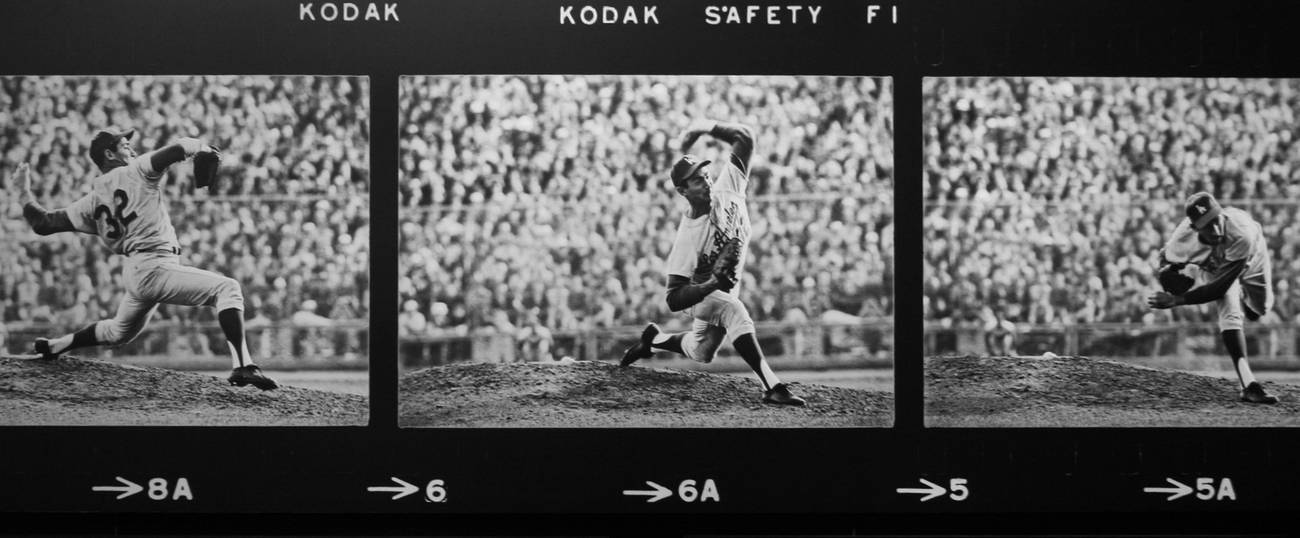Koufax’s Yom Kippur Decision
It’s been 50 years since the M.V.P. lefty sat out on the holiest day of the year, then pitched the Los Angeles Dodgers to the 1965 World Series title




On October 6, 1965—Yom Kippur—Sandy Koufax famously sat out of Game 1 of the World Series as his Dodgers were set to open the World Series against the Minnesota Twins. A day later, in Game 2, Koufax returned but lost despite a solid performance (Koufax gave up only one earned run and struck out nine in six innings of work). Soon, Koufax would solidify his place in the pantheon of the baseball gods. In Game 5 he pitched a four-hit shutout, and on October 14, on just two days rest, he pitched a three-hit shutout in the winner-take-all Game 7, earning him the series M.V.P. award.
Much ink has been spilled over the years on the circumstances of Koufax’s epic Yom Kippur game, including my article published in Tablet last year which explored whether Koufax wore tefillin during the ’65 series. And for good reason. But this year, for a truly authentic perspective on Koufax’s decision to sit out Game 1 in observance of Yom Kippur, let’s recall the pitcher’s own words surrounding his famous choice.
In 1966, just months after the famous 1965 World Series, Koufax along with sports writer Ed Linn, wrote the book Koufax. In it, Koufax addresses his Yom Kippur decision, now of lore:
I had already pitched and lost the second game of the coincidence of the opening game falling on Yom Kippur, a situation which I think was played all out of proportion. I had tried to deflect questions about my intentions through the last couple of weeks of the season by saying that I was praying for rain. There was never any decision to make, though, because there was never any possibility that I would pitch. Yom Kippur is the holiest day of the Jewish religion. The club knows that I don’t work on that day. When Yom Kippur falls during the season, as it usually does, it has always been a simple matter of pitching a day earlier, with two days’ rest, when my turn happened to be coming up.
So there you have it. Arguably, one of the most famous moments in modern American Jewish history is chalked up to being taken out of proportion. Well, Mr. Koufax, if in 1966 you thought it was taken out of proportion, where do we stand today? To quote his biographer, Jane Leavy, in a 2002 interview with Sports Illustrated: “[H]e never had a clue it would turn him into a new Patriarch… He may not have thought it was a big deal, but it was a big deal to everybody else who had been bar mitzvahed or was going to be bar mitzvahed.”
And to think, if Koufax’s prayers for rain had been answered…
Previous: Fans Vote Sandy Koufax as One of the Four Greatest Living Players
Related: Did Sandy Koufax Lay Teffilin During the 1965 World Series?
VoxVault: Enough Already With Koufax
Aaron R. Katz is an associate in the corporate and securities practice at Greenberg Traurig. He lives with his wife and three children in Israel.